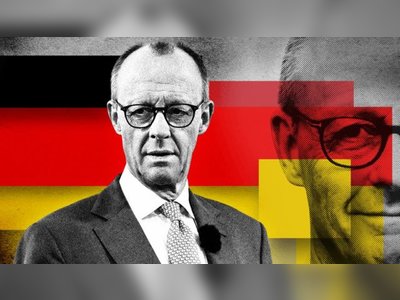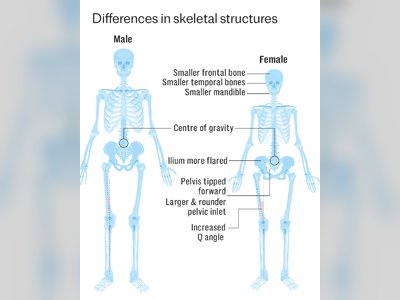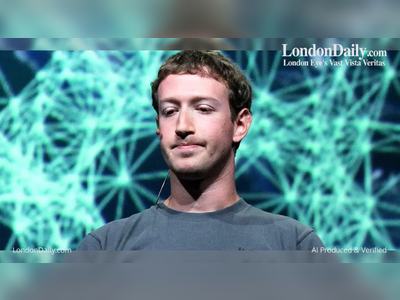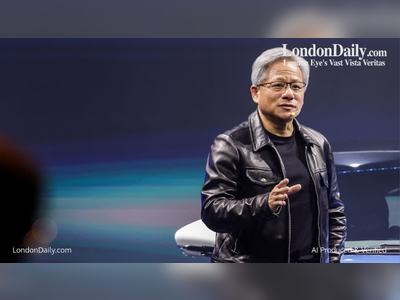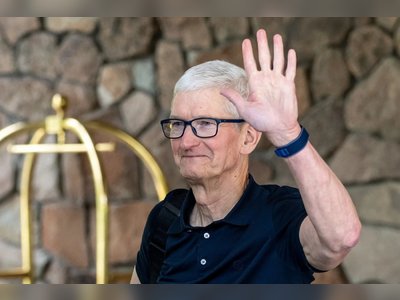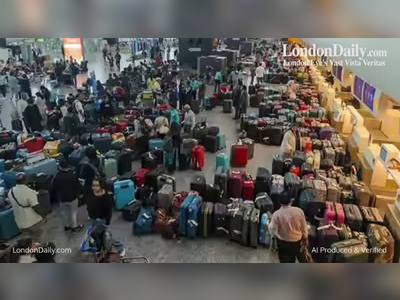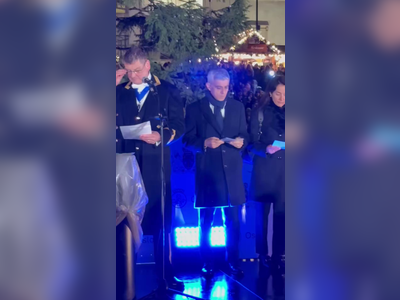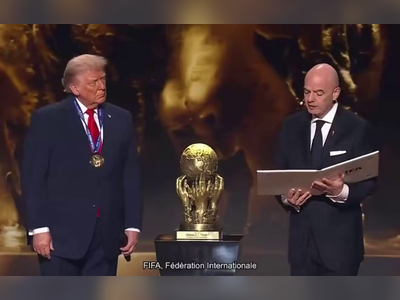
UK Foreign Secretary Warns Against Misinterpreting Putin’s Diplomacy Ahead of Ukraine Talks
David Lammy emphasizes the need to uphold Ukraine’s sovereignty as diplomatic tensions rise between the West and Russia.
David Lammy, the UK Foreign Secretary, has cautioned that the West should not be misled by Russian President Vladimir Putin’s framing of imperial ambitions as pragmatic diplomacy regarding the future of Ukraine.
Speaking at the G20 summit in South Africa, Lammy raised concerns after Russian Foreign Minister Sergei Lavrov's address, asserting that the UK is willing to listen but has yet to observe genuine Russian intent for a lasting peace that respects Ukraine’s sovereignty as well as the United Nations charter.
Lammy contended, "What I heard was the logic of imperialism dressed up as realpolitik," underscoring that any conversation about peace must reject what he termed 'Tsarist imperialism.' He called for actionable commitments from Moscow to demonstrate readiness for a sustainable cessation of hostilities.
The diplomatic landscape has become increasingly complex as UK Prime Minister Keir Starmer prepares for a significant visit to Washington, D.C., next week.
During these discussions, Starmer aims to navigate the delicate balance of supporting Ukraine while aligning with U.S. President Donald Trump, who has initiated negotiations with Russia independently of Ukraine or European partners.
Tensions escalated when Trump characterized Ukrainian President Volodymyr Zelenskyy as a dictator with low approval ratings and accused him of avoiding elections amidst ongoing conflict.
Starmer’s impending meeting with Trump coincides with French President Emmanuel Macron’s visit to the White House.
Macron has stated his intention to persuade Trump that a perceived weakness towards Putin could undermine U.S. efforts to confront China and curb Iran’s nuclear ambitions.
He remarked, "How can you be credible with China if you’re weak with Putin?" emphasizing the imperative of demonstrating strength against Moscow.
The rhetoric surrounding Zelenskyy has faced significant backlash from other Western leaders.
A spokesperson for Downing Street reiterated Starmer’s support for Zelenskyy, highlighting his status as Ukraine’s democratically elected leader and referencing historical precedents for suspending elections during wartime, such as Winston Churchill during World War II. In contrast, various political figures including Reform leader Nigel Farage and Shadow Foreign Secretary Priti Patel have publicly rebutted Trump’s characterization of the Ukrainian leader, reaffirming the legitimacy of his presidency.
On the sidelines of these political dynamics, Elon Musk also commented via social media, asserting that Zelenskyy was “despised” by the Ukrainian populace and suggesting that he would lose an election if held.
As Starmer prepares for his discussions in Washington, securing U.S. commitments to provide security assurances for Ukraine in the event of a ceasefire is anticipated to be a focal point, alongside potential discussions regarding increased European defense funding.
Trump has been vocal about the need for more financial contributions from European allies to support Ukraine, indicating that the U.S. has reached a limit in its military support.
Chancellor Rachel Reeves has pointed to the need for careful fiscal planning if European defense spending is to be increased, warning that such measures would necessitate difficult financial decisions.
The government is reportedly considering a plan to escalate defense spending to 2.5% of GDP, with the announcement expected alongside a strategic defense review set to be completed in spring.
Responses to potential defense spending increments have varied, with former Treasury Minister Ed Balls discussing the viability of relaxing fiscal constraints to accommodate increased defense expenditures.
Meanwhile, Starmer has intimated a willingness for the UK to participate in a peacekeeping force in Ukraine, a proposition met with caution from both Moscow and the German government, which labeled the notion of European military presence in Ukraine as premature.
Defence Secretary John Healey commented that any discussion of peacekeeping forces is speculative at present and emphasized the necessity of direct involvement from Ukraine in future negotiations.
He reiterated the UK’s commitment to supporting Ukraine, stating, "Our job is to stand with the Ukrainians, support them in their fight...
and if they choose to talk, support them in the negotiations as well."
Speaking at the G20 summit in South Africa, Lammy raised concerns after Russian Foreign Minister Sergei Lavrov's address, asserting that the UK is willing to listen but has yet to observe genuine Russian intent for a lasting peace that respects Ukraine’s sovereignty as well as the United Nations charter.
Lammy contended, "What I heard was the logic of imperialism dressed up as realpolitik," underscoring that any conversation about peace must reject what he termed 'Tsarist imperialism.' He called for actionable commitments from Moscow to demonstrate readiness for a sustainable cessation of hostilities.
The diplomatic landscape has become increasingly complex as UK Prime Minister Keir Starmer prepares for a significant visit to Washington, D.C., next week.
During these discussions, Starmer aims to navigate the delicate balance of supporting Ukraine while aligning with U.S. President Donald Trump, who has initiated negotiations with Russia independently of Ukraine or European partners.
Tensions escalated when Trump characterized Ukrainian President Volodymyr Zelenskyy as a dictator with low approval ratings and accused him of avoiding elections amidst ongoing conflict.
Starmer’s impending meeting with Trump coincides with French President Emmanuel Macron’s visit to the White House.
Macron has stated his intention to persuade Trump that a perceived weakness towards Putin could undermine U.S. efforts to confront China and curb Iran’s nuclear ambitions.
He remarked, "How can you be credible with China if you’re weak with Putin?" emphasizing the imperative of demonstrating strength against Moscow.
The rhetoric surrounding Zelenskyy has faced significant backlash from other Western leaders.
A spokesperson for Downing Street reiterated Starmer’s support for Zelenskyy, highlighting his status as Ukraine’s democratically elected leader and referencing historical precedents for suspending elections during wartime, such as Winston Churchill during World War II. In contrast, various political figures including Reform leader Nigel Farage and Shadow Foreign Secretary Priti Patel have publicly rebutted Trump’s characterization of the Ukrainian leader, reaffirming the legitimacy of his presidency.
On the sidelines of these political dynamics, Elon Musk also commented via social media, asserting that Zelenskyy was “despised” by the Ukrainian populace and suggesting that he would lose an election if held.
As Starmer prepares for his discussions in Washington, securing U.S. commitments to provide security assurances for Ukraine in the event of a ceasefire is anticipated to be a focal point, alongside potential discussions regarding increased European defense funding.
Trump has been vocal about the need for more financial contributions from European allies to support Ukraine, indicating that the U.S. has reached a limit in its military support.
Chancellor Rachel Reeves has pointed to the need for careful fiscal planning if European defense spending is to be increased, warning that such measures would necessitate difficult financial decisions.
The government is reportedly considering a plan to escalate defense spending to 2.5% of GDP, with the announcement expected alongside a strategic defense review set to be completed in spring.
Responses to potential defense spending increments have varied, with former Treasury Minister Ed Balls discussing the viability of relaxing fiscal constraints to accommodate increased defense expenditures.
Meanwhile, Starmer has intimated a willingness for the UK to participate in a peacekeeping force in Ukraine, a proposition met with caution from both Moscow and the German government, which labeled the notion of European military presence in Ukraine as premature.
Defence Secretary John Healey commented that any discussion of peacekeeping forces is speculative at present and emphasized the necessity of direct involvement from Ukraine in future negotiations.
He reiterated the UK’s commitment to supporting Ukraine, stating, "Our job is to stand with the Ukrainians, support them in their fight...
and if they choose to talk, support them in the negotiations as well."

